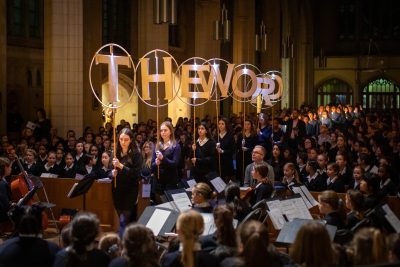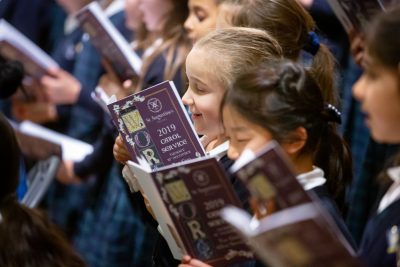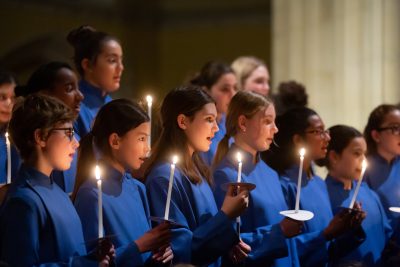
The Catholic Bishops’ Conference of England and Wales has designated 2020 The Year of the Word: The God Who Speaks. The story of Salvation History told through the Old and New Testaments is a tale of the everyday and the miraculous. It is an invitation to be still. It is an extraordinary narrative of human longing and the presence of the divine.
Although Christmastide has now ended, it is also a period where the public and the private intersect. In the birth narratives Mary and Joseph must travel to Bethlehem in Judaea for the census. The secular obsession with counting is right there in history. Humans have always been measured. Their private journey is one which resonates with all couples who have travelled or moved when expecting a baby. The story is poignantly relevant for all those homeless in our wealthy society, in bed and breakfasts all over the country. Children growing up all over Britain knowing only one room and not allowed to be in there during the day. That this has become normal is unacceptable and is starker at Christmas. Nothing is sacred about poverty or pain.
At the same time, in our schools we practise our Nativities and children, dressed as Mary and Joseph, arrive at the Inn accompanied by a child fitted out in donkey onesie. Childbirth is an everyday occurrence. There is nothing earthier than childbirth. And nothing so connected with a sense of the transcendent. Word made flesh.

In schools, we prepare during Advent. Liturgically we are purple. We light candles for the four Sundays of Advent. We usually get as far as hope, faith, joy before we break up for the holidays. We sing carols and at St Augustine’s Priory we decorated classrooms with recycled decorations and resisted buying plastic. Our Carol Service proclaimed the Year of the Word. Word made flesh which has come to dwell amongst us. We juxtaposed tinsel with prayer, crackers with coats for the homeless, mud with glory.
Then we went away for the holidays. The public moved to the private sphere. Our community worshipped or celebrated or both, according to their traditions. We treasured the fact that for our Orthodox families, their Christmas happened after we returned to school to mark the Feast of the Epiphany. While we were away the Gospel readings were of dreams – so many people are affected by a dream in the Christmas story. Voices and decisions are changed by divine inspiration, by God speaking. Reunited as a school in January, we heard the story of the Magi, of their gifts and their journey. Together we pondered journeys planned, undone, rethought and revisited. Journeys by camel, by foot, today made by plane, car and, if we are still enough, journeys made in an interior landscape. In the darkness of the days when it barely seems to get light, we can enter that place of peace if we choose.
Many people heave a sigh of relief when Christmas is over. Perhaps it is too heightened. Entering Ordinary time is not a bad thing, which is fortunate as there is so much of it. But the sacred has touched us and we would be wise to allow the sacred to linger when the cloths and the robes are green, when we see the shoots of the croci making their way, the days brighten and we hear birds sing again.
But Ordinary time is deceptive. It is not ordinary at all, merely referring to how it is an ordinal time – a time of counting the weeks from the 1st to the 34th. For Christ is among us throughout the numbering of the seasons – in the ordinary, in the extra-ordinary.
Categories: Uncategorised

